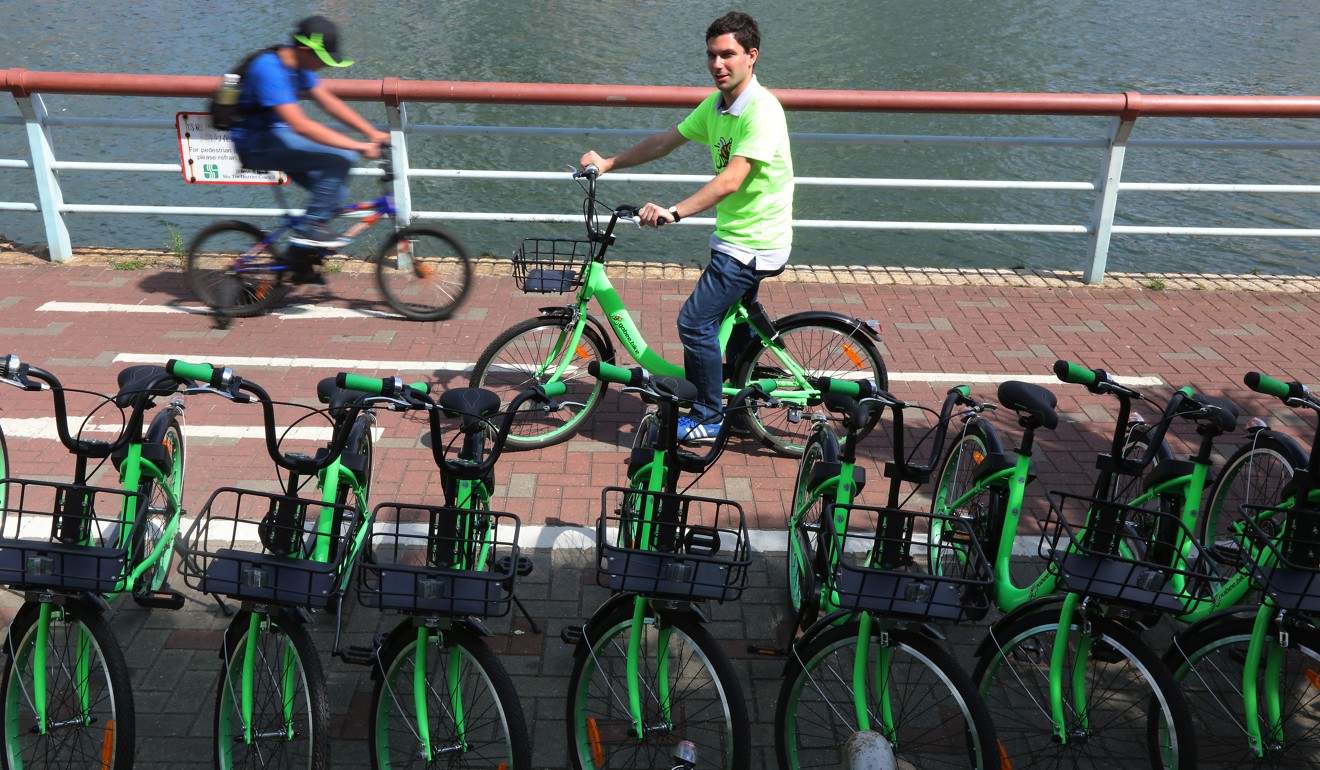
Hong Kong lags behind on technology, innovation and sharing economy, survey shows
University of Hong Kong survey finds Taipei, Shenzhen, Seoul and Singapore all scored higher
Hong Kong is lagging behind other Asian cities in developing innovation and technology, and the government has a less open-minded approach towards a sharing economy, a survey of local residents has shown.
The Sharing Economy Alliance, which commissioned the survey, urged the government to set up a task force to push for public debates and get consensus to produce draft policy on the matter. A sharing economy refers to the renting of houses, cars or other services between individuals via the internet.
Compared to four other Asian cities, including Taipei, Shenzhen, Seoul and Singapore, Hong Kong scored the lowest in developing innovation and technology in the study, which was conducted by the University of Hong Kong’s Public Opinion Programme between August 24 and 31. Some 636 Hong Kong residents took part in the survey.
Why won’t Hong Kong embrace sharing economy?
While Seoul and Singapore were given the highest scores at 3.8 out of five, Hong Kong scored an average of only 1.9.
While 62 per cent of Hong Kong respondents agreed a sharing economy could help the city to be more competitive, more than 70 per cent of respondents considered the city’s government to be less open towards the idea of this newly emerging economic system, when compared with neighbouring cities.
“The government might think they have paid a lot of efforts in pushing [innovation and technology], but now there is a big difference in public perception,” said Simon Lee Chao-fu, convenor of the alliance, a newly established group formed by more than 10 people involved in sharing businesses such as car, flat and pet-related services.
Hong Kong slips to new low in innovation rankings
“The government should look into why the public would have such thoughts,” Lee said.

“The sharing economy has already been allowed or been involved in policy discussion in many places, but we haven’t even started any policy discussions,” Lee said. “That makes us fall behind the others.”
While the Innovation and Technology Bureau was tasked to coordinate different government bureaus in technology matters, more than 60 per cent of respondents were dissatisfied with its work.
Lee urged the government to engage with the public to debate these issues, and hopefully gather consensus for drafting appropriate policies.
He said the idea could be similar to the land supply task force formed last week. The committee, made up of 30 people, aimed to get a public consensus on how to best tackle the city’s housing crunch.
Umbrellas the latest trend in China’s sharing economy
He added policy designs and adaptations from other cities could also be referenced when looking for appropriate sharing economy practices for the city.
An Innovation and Technology Bureau spokesman said the government adopted an “open mind” towards a sharing economy.
“For the government, we welcome innovative business models as long as they are operating in a legal manner. Relevant policy bureaus have also been reviewing their policies and regulations on an ongoing basis to ensure that they can achieve the desired policy objectives,” he said.

